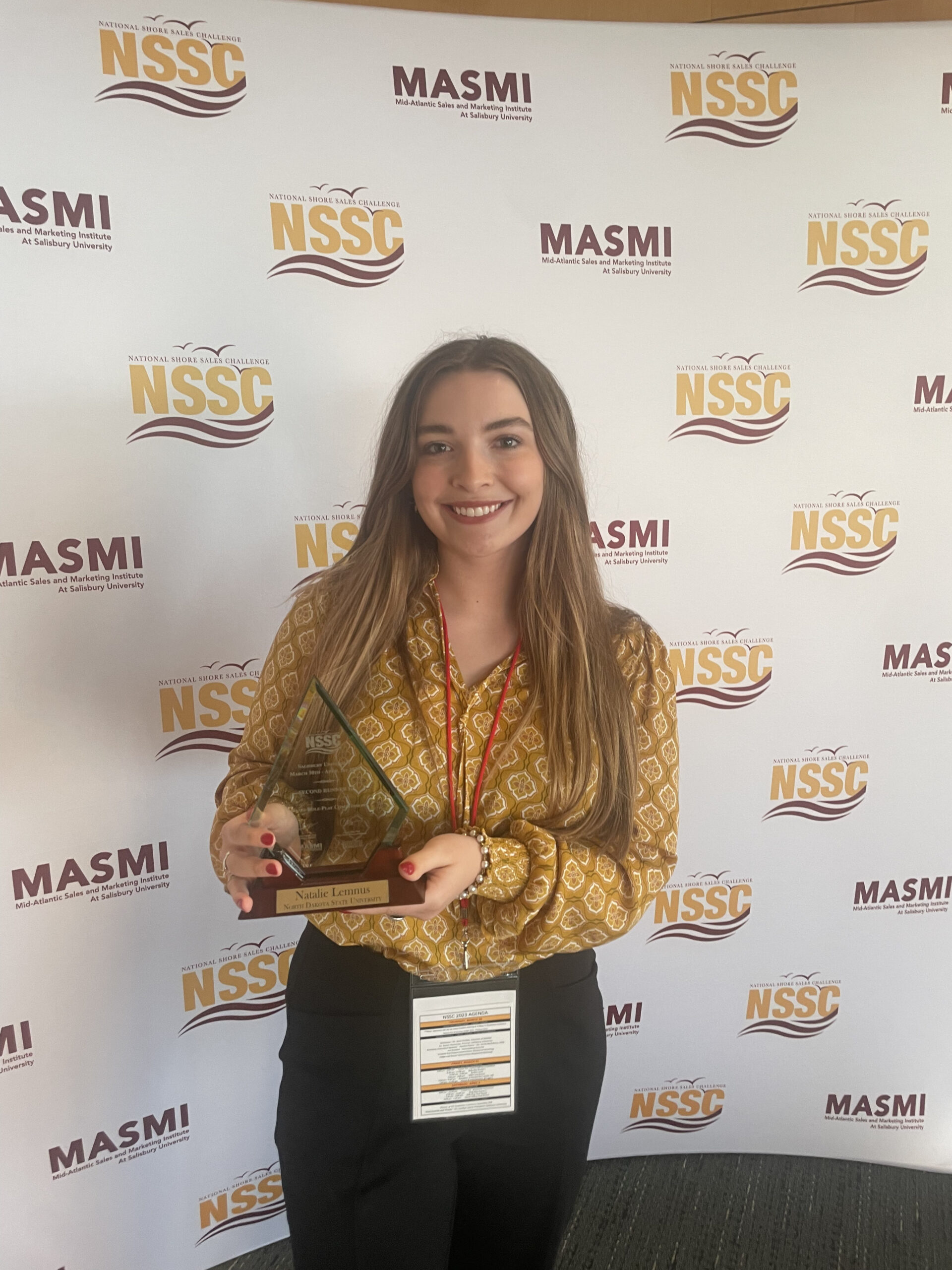A key part of success during college is engaging with the course material outside of the classroom. Strong academic performance is necessary, but for those looking to stand out and challenge themselves, professional experience is an effective avenue.
Natalie Lemnus, an NDSU senior double majoring in finance and marketing and minoring in professional selling, recently took third in the National Shore Sales Challenge. Two students selected from 40 universities competed. Each contestant did a series of role plays, acting as a sales representative selling products for Perdue Chicken, the executive sponsor.
At first, the participants were divided into various rooms where they did a 12-minute role play. The top two from each room advanced to the semi-finals. From there, the top person advanced to the finals. Lemnus finished third of the five finalists.
“Competitions like this are so valuable because of two things,” said Lemnus. First, “you are getting an opportunity to flex your muscles.” Professional opportunities before a career create a realistic simulation where one can show the world who they are without having a job on the line. “You’re doing it in the spot where it’s okay to mess up.”
These competitions also allow for “you to really learn a lot about yourself. You’ll learn a lot about how you can handle stress, performing… and how you work under pressure,” said Lemnus. It is hard to find a career that doesn’t have high-stakes conversations, especially marketing.
Regarding a previous competition, she said, “I didn’t come all the way to Maryland and prepare for months in advance, just to have a little panic attack, and 12 minutes, and throw it all down the drain so you really learn a lot.”
Experiences like this demonstrate that “you get one shot.” And learning how to deal with that pressure can’t be avoided.
Competitions like this allow students to show what sets them apart. GPAs are important but aren’t everything. Lemnus attributes her success to her ability to connect with people. “I just sat down and had a genuine conversation with them and asked them some questions.”
At first, “I almost overprepared for it… I tried to think of a comeback for every single rejection that they possibly could have come up with.” Lemnus added, “I tried to memorize my lines for this one,” but “I realized that that’s like not what sales is.”
“Genuinely having a conversation about them and asking them questions and finding out what they need, where their gaps are at, how you can create value for them.” Adding, “I don’t have to have all of the answers, but knowing that I do have a product that can create value for them.”
For Lemnus, “I can create value for them by being honest and wanting to know, understand their situation, and understand where I can help.” Adding, “don’t overthink it like, go in there, lead with a genuine desire to help them.”
